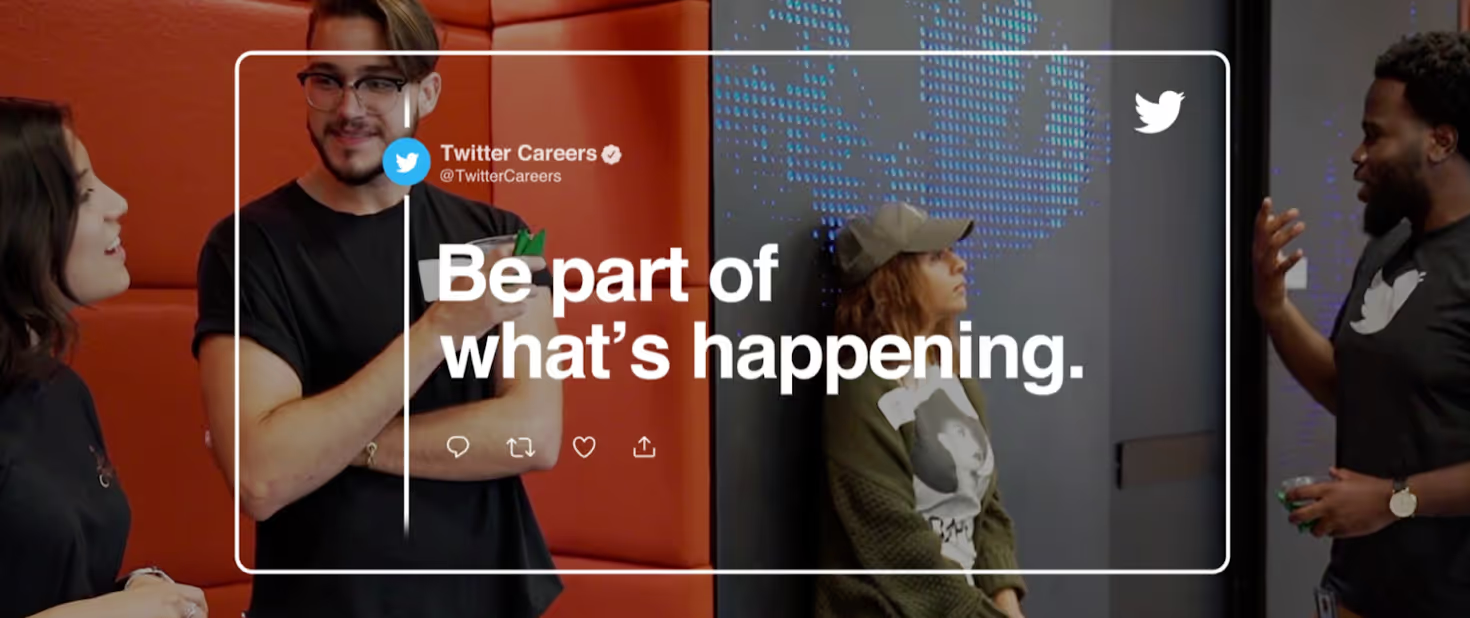X is the world’s digital town square: over 6000 posts are posted every second, good for over 200 billion tweets per year. It’s the hub for breaking news, hard-hitting journalism, and, increasingly, long-form analysis.

X hosts over two dozen offices around the world, but one of the biggest draws of working there is the flexibility: since 2020, the company has allowed employees to work from home — forever.
X is a heavily consumer-focused company, which makes it a great fit if you like building B2C products at scale; creating and optimizing ad platforms; applying ML to solve user-facing problems; or thinking about the future of technology, democracy, and society. Don’t underestimate the company’s robust developer tooling and API ecosystem, either.
Week 0
Submit your resume and get referrals.
Week 1
Initial phone screen with HR. Covers behavioral and resume-based questions.
Week 3
Two back-to-back, hour-long phone interviews with product managers. Focuses on product design and product sense, along with some behavioral questions.
Week 5
A day of onsite interviews. In the morning you’ll interview with a hiring manager and potential coworkers. These interviews will have case study questions in addition to the traditional behavioral and technical/product questions. In the afternoon you’ll have a group interview, where you and a few other candidates are given a problem and have to work through it together.
Week 6
Some candidates are invited back for another onsite round. You’ll make a presentation on a given prompt, and you may be asked other behavioral questions.

X prides itself on being a product-focused company, and its PM interviews reflect that. In addition to the usual design questions, Twitter interviews also feature product case studies that ask you to walk through everything from user groups to pain points to feature ideas.
As politics has taken over the internet, X has reaffirmed its values of honesty, healthy conversations, and responsibility. “X is not a business — it’s a service with a business that keeps it going.” Don’t expect X to love growth-hacking or “breaking things.” Focus instead on empathizing with users and serving the public good.
Design the web user experience for Lyft.
Unlock free sample PM interview videos

Your role as a X PM will mostly focus on building things, but being able to zoom out and see how your work fits into the bigger picture is still very important. X has nowhere near as many PMs as the FAANG titans, so each X PM is responsible for a lot of corporate strategy.
Should Netflix build a native co-watching experience?
Unlock free sample PM interview videos

Empathy. Responsibility. Diversity. Perspective. Support. Truth. Transparency. Uplifting. Health.
These are just a few of the words that X employees use to describe the company’s culture and values. X focuses much more on the human element than the average tech company, and they want to see how you would contribute to that.
X likes to say that your team is your team, even outside of work. Think about how you could add to the Twitter community and how you’d support your colleagues.
Expect a lot of questions that are about culture, either implicitly or explicitly, but don’t forget that you’ll get a lot of the classic leadership and teamwork questions too.
Amazon PM's "tell me about yourself."
What is the most important thing a PM does?
Tell me about a time when you earned the trust of a person or group.
Unlock free sample PM interview videos
Interested in product management but don’t know where to start? This course will help kickstart your career as a PM by helping you land any interview. This course comes with lifetime access and is constantly being improved and updated to stay relevant to the PM recruiting processes of top tech companies.
Course last updated:
Discover unique activities and projects worth pursuing to stand out from others
Actionable techniques to get referrals at any company
Powerful LinkedIn strategies which will make PM recruiters reach out to you
Crafting the ultimate product resume to demonstrate your value
Overwhelmed by all the different questions you may get asked during the product management interview? This course will teach you how to answer ANY question thrown your way. This course comes with lifetime access and is constantly being improved and updated to stay relevant to the PM recruiting processes of top tech companies.
Course last updated:
Course details
16 hours of video lessons
62 pages of interview strategy guides
Lifetime access
The most commonly asked product questions plus comprehensive answers
Frameworks and whiteboarding techniques to structure your responses
The proven formula for standing out in an interview, as revealed by calibrated product management interviewers
Strategies to rapidly build rapport with interviewers to make them vouch for you
Struggling to research and understand X before your interview? This course gives you the inside scoop on X to help you land your dream Product Manager role.
We provide a 9-page study guide with important facts (such as X's market share and user metrics), X's strategic roadmap (like Fleets and Mention Control), and a compilation of the most frequently asked PM interview questions in the last 3 years. We also include an exclusive interview with a X Product Manager to show you how their culture, interview process, and strategic roadmap varies from other companies.
Course last updated:
Course details
10 hours of video lessons
200 pages of study guides for top 22 companies
Lifetime access
Exclusive interviews with product managers at 13 top companies
The most commonly asked PM interview questions for each company—see sample
Core study guide with each company’s strategic roadmap, financials, and other important facts—see sample
Inside scoop on what each company looks for to pass the interview
